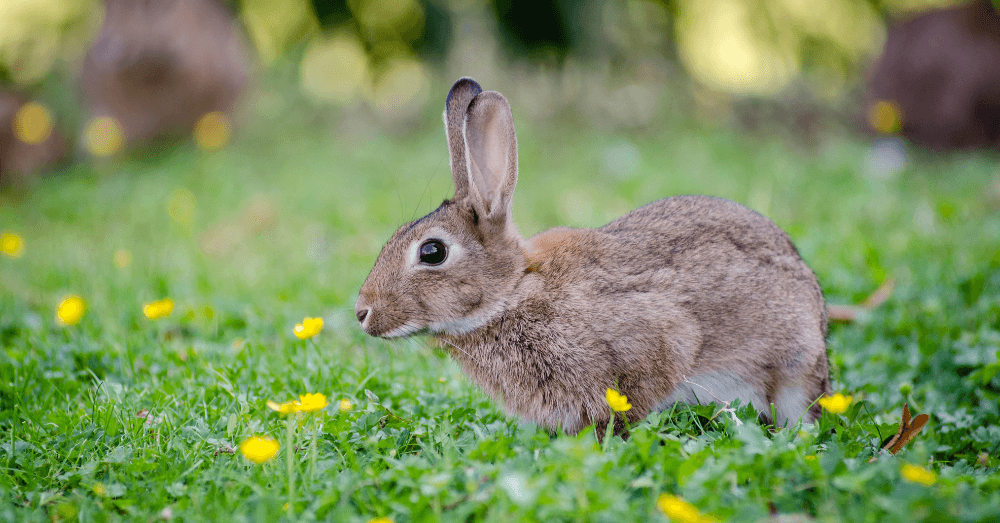Would you allow your beloved pets to become food for some of nature’s most dangerous
predators? A Danish zoo is actually defending this practice.
Aalborg Zoo in Denmark is requesting donations of chickens, rabbits, guinea pigs, and
horses to feed their predators, sparking online controversy. The zoo defends the practice as
necessary for maintaining natural feeding behaviors and preventing waste, though critics
disagree with using donated pets as food. Captive carnivores, such a lynxes and lions, can
practice their predatory instincts while devouring pets that are near the end of their lives.
Can you imagine the horror
Imagine donating your older pets, ones that are ready to be euthanized, to the zoo to be
hunted down and devoured. Do you think you could handle listening to the horrific screams
as your pet is torn to pieces? Thankfully, that’s not what’s happening at the Aalborg Zoo in
Denmark.
Instead of the inhumane nature of hunting down prey, the zoo welcomes animals that have
been gently euthanized by trained zoo employees before being used for the zoo’s predators.
This might be a much more acceptable scenario than seeing your beloved pet hunted
down. The pet is already dead, which means the animals that use it as food are able to gain
sustenance from the pet.
Nothing goes to waste
The zoo is defending this practice as good for the predators they keep in captivity, including
lynxes, lions, and tigers. The zoo can mimic the natural food chain by feeding whole prey to
the predators, ensuring nothing goes to waste. This allows the predator to practice its
natural behavior and enjoy the nutrition required from eating the meat of prey animals. The
predators are well-fed, the pet is already dead, and nothing goes to waste.
Horses are a favorite, but there are conditions
There are processes for donating animals, but horses are some of the most popular
choices for this donation process. The needs of the zoo vary throughout the year, which
means there could be a waiting list to donate horses, which require certain conditions.
Before horses can be donated, the animal must not have been recently treated for an
illness. This could cause the predators to get sick, which should be avoided if at all
possible.
When horses are donated, they are delivered alive to the zoo, then euthanized by a
zookeeper and a veterinarian. After this, the horses are slaughtered and fed to the
predatory animals.
The zoo also accepts chickens, rabbits, and guinea pigs at certain times on weekdays, but
there are limits to the number of these animals that can be donated.
Is this a foul practice?
Should a zoo advertise that they accept pets as prey for its predator animals? Some don’t
feel this is a good practice and creates indifference with animals in Denmark, but many
people have donated these animals for a long time. Some animals need to be euthanized,
and many guest and partners participate in the practice, which allows the pet to be useful
to the zoo after its passed on.
“For many years, employees have fed our carnivores with smaller livestock. Many of our
guests and partners appreciate the opportunity to contribute.”
-Pia Neilsen, spokeswoman for Aalborg Zoo
Support from a larger organization
The Aalborg Zoo story might be a hot topic right now, but this is not a new practice. The
European Association of Zoos and Aquaria has publicly supported the use of these animals
as food for predators in captivity. Most zoos typically purchase meat for their animals from
licensed suppliers, similar to buying from a butcher, but there are alternatives that can be
used. Some zoos use roadkill, as long as legal conditions are met, and can use donated
pets, but only those that are listed.
Cases of using pets as food for predators tend to be rare but are handled with great care.
This allows the animals to be used to avoid unnecessary waste, supporting the natural
feeding of predators with animals that are already dead.
How do you dispose of a horse?
Horses are the favorite animals donated to the zoo, and donating a horse that faces
euthanasia makes a lot of sense. Instead of the owner figuring out how to dispose of a dead
horse carcass, the horse can be used as food for predatory animals. This allows the horse
to make a difference at the zoo and help keep the large cats satisfied and healthy. While it
might not seem appealing to everyone, this could be a good use for the horse meat, and
much better than allowing the horse to rot in the ground.
The choice is that of the pet owners?
Just because this Danish zoo is requesting various animals, mostly horses, but a few
others, doesn’t mean owners must donate their animals to the project. This is entirely the
choice of pet owners and whether or not they can live with their animals being used for
food after they are euthanized. Some pet owners might want to bury their beloved pets, but
others can see the value in donating them to the zoo to be used as food for the large cats.
Would you ever consider donating your pets to a zoo for food? Can you see the benefits a
donated horse can offer to a zoo such as this one?


